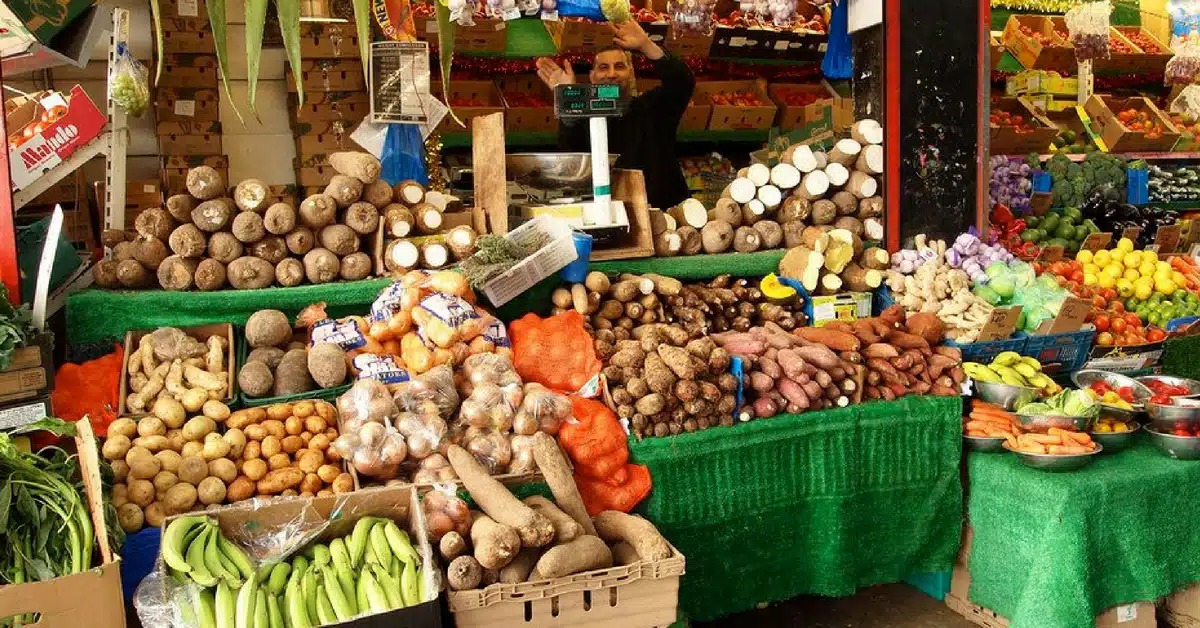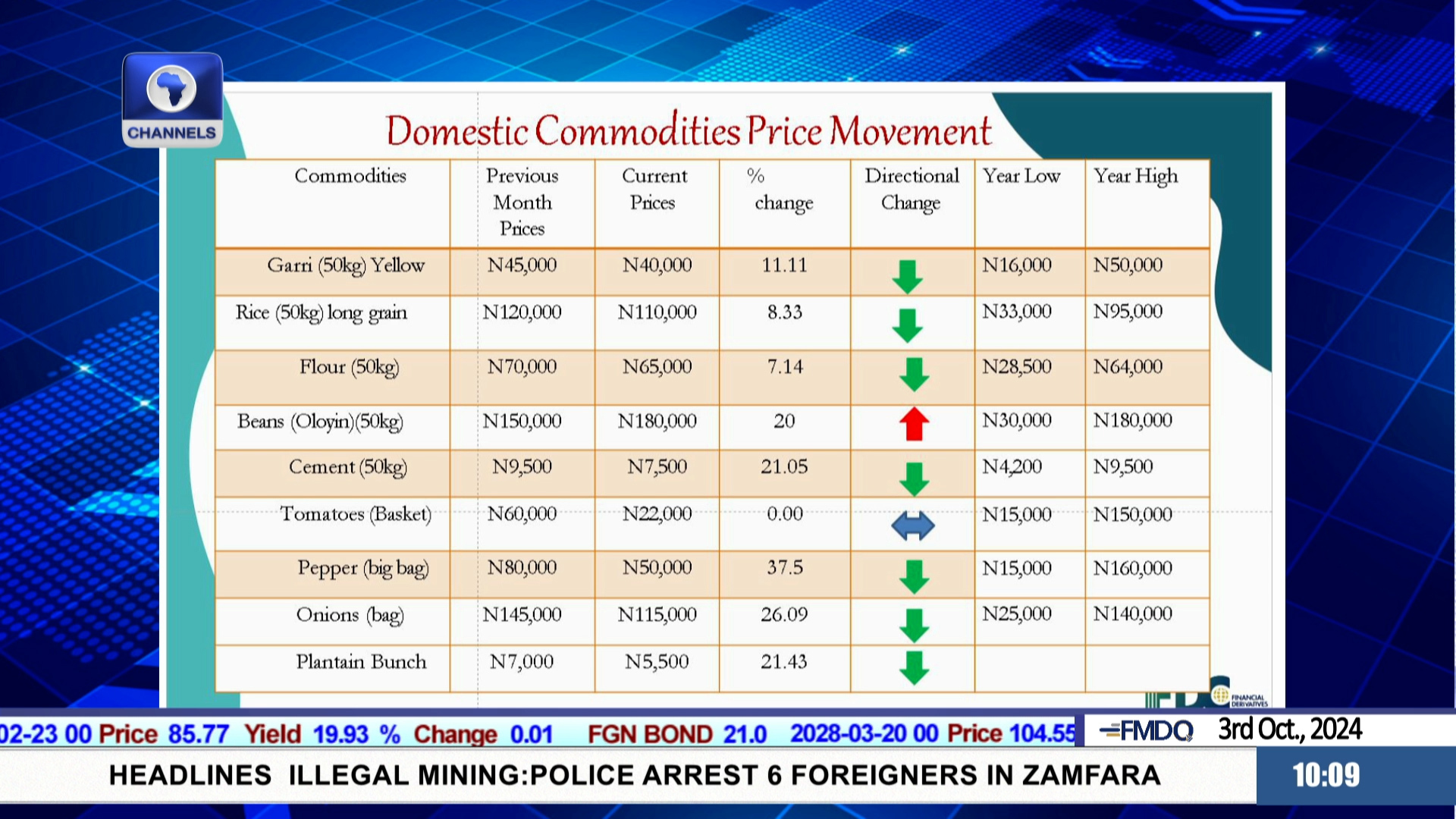
The Managing Director of Financial Derivatives Company Limited, Bismarck Rewane, says while the prices of other food commodities have recorded a minimal drop in the last few days, market prices of beans have significantly gone up.
Rewane stated this on Channels Television’s Business Morning segment of Sunrise Daily breakfast programme on Thursday.
“We’ve seen onions come down sharply to N115,000, and rice has also come down to N110,000; it was as high as N120,000. The commodity that is surprising to everybody is beans; beans has gone out of storage and out of reach,” he said.
The economist attributed the hike in beans’ prices to recent flooding which ravaged food-producing states like Borno, Bauchi, and Sokoto, amongst others.
“Flooding has destroyed a lot of goods,” Rewane said, adding that the costs of moving agricultural produce from farms to the markets have also gone up due to a recent hike in petrol prices — from around N600 to about N1,000 per litre.

The economist predicted that food inflation would increase in the coming weeks but was optimistic that duty waivers on expected imported commodities would moderate prices.
“For now, despite everything, we think that inflation will still increase. Food inflation in particular will increase; headline inflation will increase to 34% but this is only temporary. When the imported commodities that we are going to enjoy the duty waivers come into the country, those prices will start to reduce,” Rewane said.
On October 1, 2024. President Bola Tinubu said his administration is focused on restoring peace to the troubled parts of the North so that farmers displaced by bandits and kidnapping can return to their farmlands and increase food production.
“We expect to see a leap in food production and a downward spiral in food costs. I promise you, we shall not falter on this,” Tinubu said on Tuesday during his 2024 Anniversary Broadcast on the occassion of Nigeria’s 64th Independence Day Anniversary.
Unprecedented Food Inflation
Nigeria is battling one of its worst economic crises in recent times, with rising living and energy costs, sparked by the twin policies of the government’s removal of petrol subsidy and unification of the foreign exchange windows in May 2023.
In August, aggrieved youths protested hunger and economic hardship for the first 10 days of the month. The country’s inflation stood at 32.15% in August, according to the latest data from the National Bureau of State Statistics (NBS).
The NBS said the food inflation rate in August 2024 was 37.52% on a year-on-year basis, which was 8.18% points higher compared to the rate recorded in August 2023 (29.34%).
It attributed the rise in food inflation on a year-on-year basis to increases in prices of bread, maize, grains, guinea corn, bread, cereals yam, Irish potatoes, water yam, cassava tuber, palm oil, and vegetable oil, among others.
The Tinubu administration alongside governors in the 36 states has rolled out some palliative measures but Nigerians continue to be lamentably hurt by the severe impact of inflation as the prices of food commodities and basic products multiply uncontrollably.













